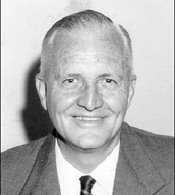CATEGORY: 419 Scam, Belief, Buyer Beware
DIVISION: Modern Evil InvestmentsCOMMENT: We see what we want to see and believe what we want to believe - that's how the investment world works. Sure, if something sounds to good to be true then it probably is. But for the other 90% of the population, if something is too good to be true then it's just because they're luckier than everyone else. So let the baby have the bottle! [see:
Financial Darwanism].
 Leamington Man Loses $150,000 In Nigerian Scam
Leamington Man Loses $150,000 In Nigerian ScamBy Trevor Wilhelm, The Windsor Star
A Leamington man has fallen prey to international scam artists who strung him along for more than a year with the promise of millions in cash, but
ultimately bilked him and his family of $150,000.John Rempel said he quit his truck driving job, lost friends, borrowed money and crossed the globe in pursuit of a non-existent inheritance, after
he was contacted by e-mail in what is known as a Nigerian 419 scam.Rempel said he borrowed $55,000 from an uncle in Mexico and his parents gave him $60,000 on credit to cover fees for transferring $12.8 million into his name.
“They’re in it now because of me,” said Rempel, 22, breaking into sobs. “If it wasn’t for me, nobody would be in this mess. You think things will work out, but it doesn’t. It’s a very bad feeling. I had lots of friends.
“I never get calls anymore from my friends. You know, a bad reputation.”His troubles began in July 2007. He said he got an e-mail from someone claiming to be a lawyer with a client named David Rempel who died in a 2005 bomb attack in London, England, and left behind $12.8 million.
“They used to come in the mail,” said Leamington police Const. Kevin O’Neil. “Now the majority of these are sent through e-mail. Keeping up with the times, using all the wonderful technology that’s available to them.”
“I was told once that they send out 30,000 e-mails a day, around the world, and they hope for just one or two responses. Once you return a phone call or return an e-mail, these people now have their hooks into you.”
The lawyer said his client had no family but wanted to leave the money to a Rempel. It was his lucky day.“It sounded all good so I called him,” said Rempel. “He sounded very happy and said God bless you.”
The man then told him he had to pay $2,500 to transfer the money into his name. Then there were several more documents. Some cost $5,000.
He was told to open an account at a bank in London. That required a $5,000 minimum deposit.
The crooks later sent him an e-mail with a link to what he was told were details of his new account. Some money had been transferred there for “safe keeping.”“Everything was good,” said Rempel.
Then he got an e-mail from a government department — he’s not sure which country — saying he owed $250,000 on tax on his inheritance. Rempel spoke to his contact, who told him they negotiated the fee down to $25,000.
Rempel went to Mexico where his uncle owns a farm. His uncle gave him $10,000 cash and money for a plane ticket. He was going to London to make sure it was legitimate.
“I had $10,000 in cash in my pocket and my uncle sent another $25,000 when I was over there.”
In London, Rempel met some people and handed over the $10,000.They met Rempel the next day with a suitcase. They said it had $10.6 million in shrink-wrapped U.S. bills. Rempel wanted more proof. His new friends pulled out one bill and “cleansed” it with a liquid “formula,” which washed off some kind of stamp. Rempel was told that process made the money “legal tender.”
“I was like holy crap, is that mine?” he said. “They said ‘yes sir, it’s yours.’ It all sounded legit.”Rempel returned to his hotel room clutching the formula and waited for the others so they could cleanse all his money. They never showed, and later told him they got held up. In the meantime, Rempel dropped the formula. The bottle broke. He called his contact who said he’d get more. Rempel returned to Leamington and waited.
A few weeks later Rempel got a call. They found more formula. It would cost $120,000.
“I thought, ‘let’s work on it, nothing is impossible,’” said Rempel.
His contacts were willing to meet associates in different countries to get cash for the formula. It would require several plane tickets, worth $6,000 each.
Rempel was told they collected $100,000, but still needed $20,000. There was a guy in Nigeria who had it, but another plane ticket was required. The contact later told him he could only get $15,000 and “begged” Rempel for the last $5,000.
Rempel borrowed money. He stopped making Visa and car payments.They called a week later and said the money was ready to go. They just needed $6,900 for travel costs and to rent trunks to ship the money.
Later, the men called to say they were at the airport in New York. Security stopped them and they needed $12,500 for a bribe. Finally, Rempel had enough.
“I said, ‘no way I’m cleaned out.’”
Rempel, his parents and 10-year-old brother Ike drove to New York. They spent a day searching the airport for the men, with no luck. They returned home and called police.
“I really thought in my heart this was true,” said Rempel.








